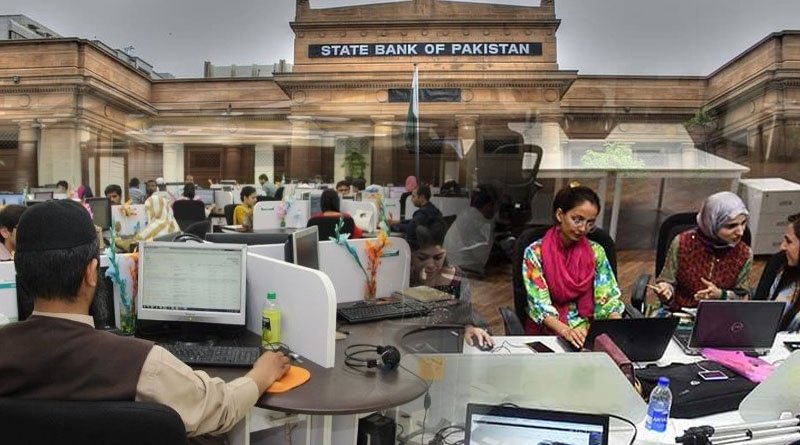The central bank has decided to encourage IT firms and freelancers to bring their foreign currency earnings into the country.

The State Bank of Pakistan (SBP) has amended its foreign exchange regulations, advising banks to retain 35 percent of the export proceeds of information technology (IT) companies and freelancers in their special foreign currency accounts until March 31, 2023, according to a statement issued on Friday.
According to a circular issued by the SBP, the instructions to amend foreign exchange regulations would be reviewed in light of incremental export performance by the IT sector and the realization of export proceeds during the specified period.
“The SBP has advised banks to provide digital channels for opening and operating these accounts.” “Banks can now facilitate outward remittances from the retained proceeds through the issuance of corporate debit cards after conducting necessary due diligence,” said the SBP’s statement.
Such exporters, however, must be registered with either the Pakistan Software Export Board (PSEB) or the Pakistan Software Houses Association (PSHA).
According to the revised list of purposes issued by SBP, exporters will be permitted to use their retained funds for legitimate business payments or expenses abroad. The central bank has decided to encourage IT firms and freelancers to bring their foreign currency earnings into the country.
Furthermore, the SBP has advised banks to establish a mechanism for facilitating and expediting the resolution of customer complaints. Banks must designate a focal person at the head office level and an appropriate officer at each branch dealing in foreign exchange business. Exporters can also approach us with their ideas and concerns.
The amendments “would incentivize new entrants in the field to focus on exports and enable existing exporters to expand their businesses, creating employment opportunities and increasing the country’s foreign exchange earnings,” the central bank said.
Foreign exchange regulations can include rules about the reporting of foreign currency transactions, limits on the amount of currency that can be exchanged or transferred, and taxes or fees on foreign currency transactions.
The main objective of these regulations is to manage the value of the domestic currency and keep a balance of payments. It also helps to maintain stability in the foreign exchange market and to prevent illegal activities such as money laundering and terrorist financing. It is also used to control the inflow and outflow of foreign currency to ensure national security and economic stability.
